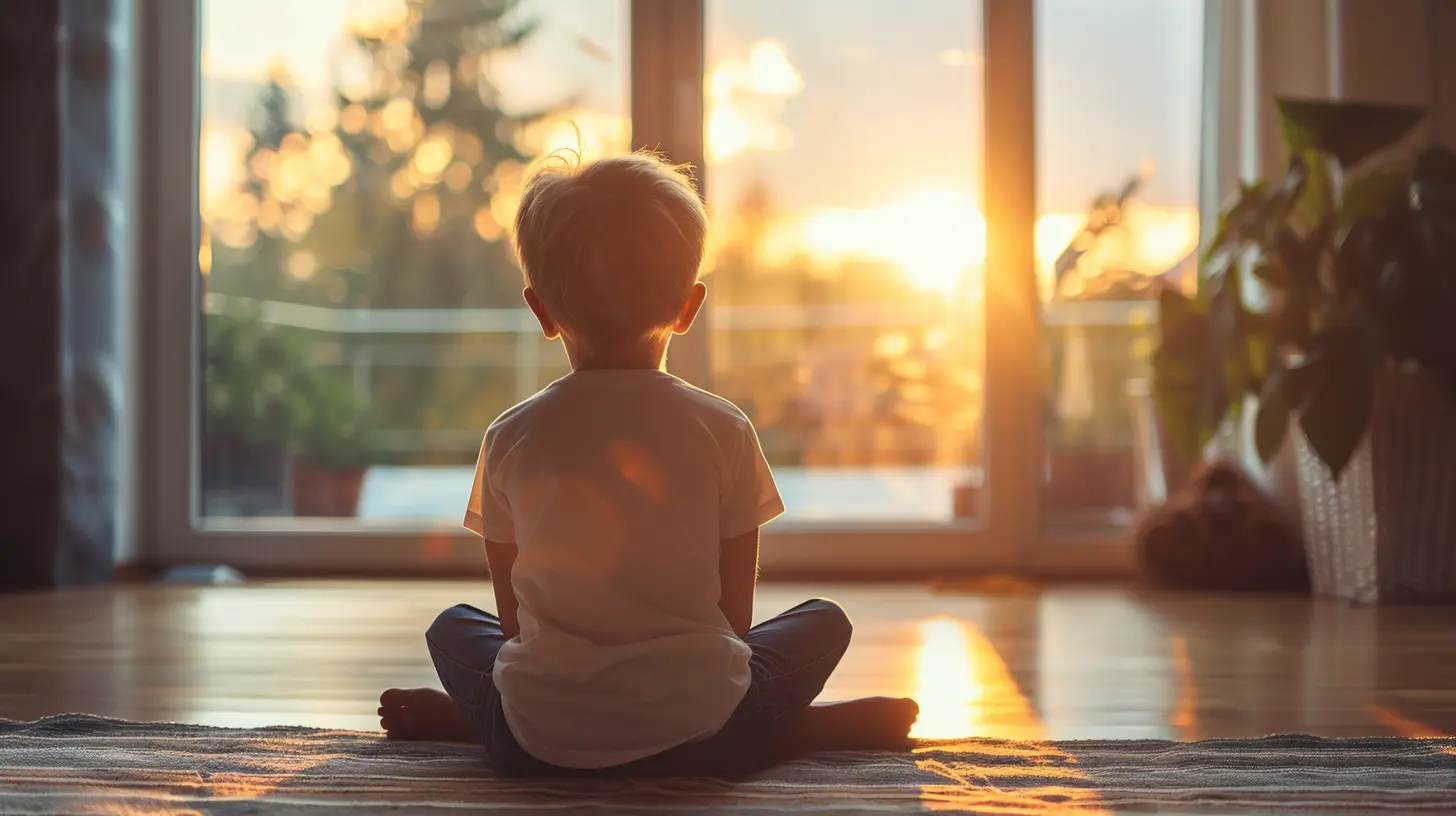Healing Kids' Sense of Home and Belonging After Divorce
11 April 2025
Divorce is never easy, especially for kids. Their whole world changes in ways they never expected, and suddenly, what once felt stable can seem uncertain. A child’s sense of home and belonging is deeply tied to their family structure, and when that shifts, they may feel lost, confused, or even abandoned.
As parents, our job is to reassure them that no matter how things change, they will always belong, they will always have a home, and they will always be loved. But how exactly do you do that when everything feels so fractured? Let’s talk about it. 
Understanding the Impact of Divorce on a Child's Sense of Home
When a divorce happens, kids often feel caught in the middle. The house they once considered "home" might not feel the same anymore. Maybe they’re moving between two houses, maybe one parent moves out while they stay, or maybe they’re leaving behind the only home they've ever known.For children, home isn’t just a physical space—it’s a feeling of security, love, and familiarity. When that gets disrupted, they may experience:
- Emotional distress – Feeling anxious, sad, or even guilty about the changes.
- A sense of displacement – Not knowing where they truly belong.
- Fear of the unknown – Worrying about how life will look moving forward.
- Loyalty conflicts – Feeling like they have to "choose" between parents.
So, how can we help them regain that safe feeling of home and belonging? 
1. Reassure Them That They Still Have a Home
One of the biggest fears kids may have after a divorce is that they are losing their home. No matter what your new living arrangements look like, reassure them that they still have a home.Even if they have two houses now, explain that home is not just about a building—it’s about love, connection, and the people who care for them.
> “Home is where you are safe. Home is where your family loves you. And no matter what, you will always have a home with both of us.”
By continuing to provide that emotional security, you're helping them redefine what home means to them. 
2. Create Stability and Routine
Divorce can make life feel unpredictable for kids. One of the best ways to give them a sense of belonging is through stability and routine.- Keep consistent schedules – Whether they're at Mom’s house or Dad’s, having expected routines (like bedtime, meal times, or weekend activities) helps them feel grounded.
- Predictable transitions – Moving between homes can be tough, so make transitions as smooth and predictable as possible.
- Familiar belongings in both homes – Make sure they have their favorite stuffed animal, books, or toys in both places to maintain a feeling of continuity.
When life feels stable, kids feel secure—and security is what makes a house feel like home. 
3. Give Them a Sense of Ownership Over Their Space
One of the hardest things about living in two homes (or moving to a new one) is that kids might feel like they’re just "visitors." You can help them feel at home by giving them a space that is truly theirs.- Let them decorate their room in both houses.
- Give them space to store their personal items.
- Allow them to be involved in setting up their new space.
Even small touches—like their favorite bedding, posters, or a drawer for their things—can make a big difference in helping them feel like they belong.
4. Encourage Open Conversations About Their Feelings
Divorce comes with a whirlwind of emotions for kids. Sometimes, they may not feel comfortable expressing their feelings, especially if they fear upsetting one parent or the other.Create a space where they feel safe sharing by:
- Letting them know their feelings are valid.
- Encouraging them to talk without judgment.
- Listening more than you speak.
- Offering reassurance that their emotions are normal.
You might say something like:
> “I know this is tough for you. I want you to know that you can always talk to me about how you're feeling.”
The more they feel heard, the more secure they’ll feel in their relationships—and in their sense of home.
5. Foster Strong Connections With Both Parents
A child’s sense of belonging is deeply tied to their relationship with their parents. After divorce, it’s important to make sure they feel equally connected to both of you.- Prioritize quality time, not just logistics. Even if time is split between two homes, make sure the time spent together is meaningful.
- Encourage healthy co-parenting—avoid putting them in the middle of conflicts.
- Never make them feel like they must choose sides or prove their love for one parent over the other.
A child should never have to feel like they’re part of a tug-of-war. They need to feel safe loving both parents, without guilt or pressure.
6. Keep Family Traditions Alive (Or Create New Ones)
Traditions are a powerful way to create a sense of belonging. Even if things look different now, try to keep certain traditions alive.- Keep celebrating birthdays the way you always have.
- Continue family movie nights, game nights, or special holiday rituals.
- If old traditions don’t fit anymore, create new ones together.
Traditions help kids feel connected to their family, even when things change. It’s a reminder that even after divorce, family is still family.
7. Surround Them With Support
A child's sense of home and belonging isn't just about parents—it’s also about the community around them. Encourage strong connections beyond the immediate family.- Extended family – Grandparents, aunts, uncles, and cousins can provide an extra layer of love and stability.
- Friends – Maintaining friendships can help them feel grounded.
- Teachers & mentors – Let their school and trusted adults offer support during this transition.
When they feel surrounded by love and encouragement, they'll be reminded that they're not alone in this journey.
8. Be Patient With Their Healing Process
Healing doesn’t happen overnight. Even if your child seems fine on the surface, they might still be processing emotions beneath it all.Some kids will adjust quickly; others might need more time. Be patient as they navigate their new reality. Keep reassuring them, keep listening, and most importantly—keep showing up.
9. Remind Them That Love Doesn’t Change
At the end of the day, the most important thing a child needs to know is that they are loved—not just by one parent, but by both.Divorce might change where they live. It might change family dynamics. But it will never change how much they are loved.
> “No matter what happens, we are still your family. You are still loved, you are still important, and you will always belong.”
That reminder will do more for their sense of home and belonging than anything else.
Final Thoughts
Divorce is a big adjustment for kids, but with love, patience, and intentional efforts, they can still feel at home—no matter how much life changes.It’s not about having a perfect situation. It’s about making sure they feel safe, loved, and secure, wherever they are. That’s what home truly is.
So keep reassuring them. Keep prioritizing their emotional needs. And most importantly, keep being their safe place. Because at the end of the day, home isn’t just a place—it’s the people who love you unconditionally.
all images in this post were generated using AI tools
Category:
Divorce And KidsAuthor:

Tara Henson
Discussion
rate this article
5 comments
Vance Hubbard
This article offers valuable insights on nurturing children's sense of home and belonging post-divorce. Practical tips and emotional support can truly make a difference. Thank you!
May 10, 2025 at 4:59 PM

Tara Henson
Thank you for your thoughtful comment! I'm glad you found the insights helpful in supporting children’s sense of home and belonging.
Lilith McNeal
Creating a nurturing space fosters love and security—your kids will thrive through this transformation!
April 23, 2025 at 2:56 AM

Tara Henson
Thank you! Creating a nurturing environment is essential for helping kids feel loved and secure during such transitions.
Soryn Conrad
Rebuilding home isn’t just physical; it’s nurturing roots that thrive in love post-divorce.
April 22, 2025 at 3:20 AM

Tara Henson
Absolutely! Nurturing emotional roots is essential for helping kids feel secure and loved after divorce.
Valeria McDowell
This article is so insightful! I’m curious about specific strategies that can help children rebuild their sense of belonging after divorce. What role do community and routines play in this healing process? Looking forward to learning more!
April 14, 2025 at 4:14 AM

Tara Henson
Thank you for your interest! Community support and consistent routines are vital in helping children feel secure and connected after divorce. These elements provide stability and reinforce their sense of belonging. Stay tuned for more strategies in upcoming articles!
Paul Warner
Great insights! Fostering stability and open communication can truly help children heal.
April 11, 2025 at 2:59 PM

Tara Henson
Thank you! I'm glad you found the insights valuable. Stability and open communication are indeed crucial for children's healing.




